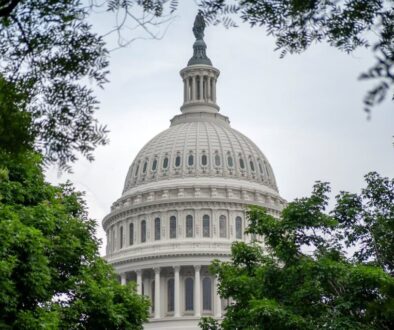In recent years, the digital world has been buzzing with terms like blockchain, cryptocurrency, and most intriguingly, NFTs. You may have heard about million-dollar digital artworks, virtual sneakers, or even tweets being sold as NFTs. But what exactly are NFTs? And more importantly, how could they reshape the real world as we know it?
Let’s dive in and explore the exciting universe of NFTs 🌐💡
🔍 What Are NFTs?
NFT stands for Non-Fungible Token.
- Non-fungible means it’s unique and cannot be replaced with something else.
- A token is a digital asset verified using blockchain technology—the same tech behind cryptocurrencies like Bitcoin and Ethereum.
In simple terms, an NFT is a unique digital certificate of ownership for a specific item, whether it’s art, music, video, virtual land, or even a tweet. Each NFT has a unique code and metadata that distinguishes it from any other, making it ideal for proving ownership and authenticity.
🖼️ Examples of NFTs in Action
- Art: Digital artists sell their work on platforms like OpenSea or Rarible, earning direct income and royalties.
- Music: Musicians can release exclusive tracks as NFTs, ensuring fans own a one-of-a-kind copy.
- Gaming: Games like Axie Infinity and Decentraland allow users to buy, sell, and trade in-game items and land as NFTs.
- Real Estate: Virtual plots of land are being bought and sold as NFTs in digital worlds (Metaverse).
🌐 Real-World Applications of NFTs
NFTs are moving beyond the digital art scene and stepping into real-world industries. Here’s how:
1. Proof of Ownership
NFTs can serve as digital deeds or titles for physical items like:
- Real estate properties
- Cars
- Luxury watches
✅ This could simplify the buying and selling process and reduce fraud.
2. Digital Identity & Credentials
NFTs can be used to store and verify:
- Academic degrees 🎓
- Professional certifications
- Government IDs
📌 No more lost diplomas or fake credentials!
3. Ticketing and Event Access
Event organizers can issue tickets as NFTs, helping:
- Reduce scalping and counterfeit tickets
- Offer fans resale options
🎟️ Concerts, sports events, and even virtual summits are adopting this model.
4. Supply Chain Tracking
NFTs can track the history of a product—helping ensure authenticity in:
- Luxury goods (e.g. handbags)
- Food and beverages (e.g. wine)
- Pharmaceuticals
🔄 This improves transparency and consumer trust.
💰 Pros and Cons of NFTs
✅ Pros
- ✔️ Verifiable ownership and authenticity
- ✔️ Royalties for creators
- ✔️ Security via blockchain
- ✔️ Decentralized and transparent
- ✔️ Opens new revenue streams for artists, musicians, and developers
❌ Cons
- ❗ Energy consumption (especially with Ethereum-based NFTs)
- ❗ Volatility in value
- ❗ Intellectual property issues
- ❗ Still a developing legal framework
- ❗ Requires digital literacy
🚀 Future of NFTs
The NFT space is evolving rapidly. Here’s what the future could hold:
🔗 Integration with Web3
As Web3 (the decentralized internet) grows, NFTs will be deeply integrated into how we interact, shop, and create online.
🏢 Corporate Adoption
Companies like Nike, Starbucks, and Adidas are exploring NFTs for customer engagement, product launches, and loyalty programs.
🎓 Education & Employment
Verified NFT resumes, portfolios, and credentials could become standard for job seekers and employers.
🏛️ Government & Legal Use
NFTs could be used for land registries, identification documents, and public records—making bureaucracy faster and more transparent.
🧑💻 Who Created NFTs?
The concept dates back to 2014, with one of the earliest NFTs being “Quantum” by artist Kevin McCoy. However, NFTs exploded in popularity around 2021, when digital artist Beeple sold an NFT for $69 million at Christie’s.
Today, platforms like Ethereum, Solana, and Polygon host most NFT transactions.
🛣️ Roadmap for NFT Adoption
| Phase | Focus Area | Expected Outcome |
|---|---|---|
| 2025 | Art, Gaming, Collectibles | Mass market awareness |
| 2026 | Real-world Tokenization | Real estate, ID, credentials |
| 2027 | Government Adoption | NFT-based licenses, records |
| 2030 | Mainstream Integration | Widespread use across all sectors |
🧠 Final Thoughts
NFTs aren’t just hype—they’re a new way of owning and trading value in the digital and physical world. While the space is still young and volatile, the potential is massive. From artists earning royalties to homeowners holding digital deeds, NFTs are reshaping how we think about ownership, identity, and trust in the modern era.
Whether you’re an investor, a creator, or just curious, keeping an eye on NFTs could pay off in more ways than one. 🚀




































